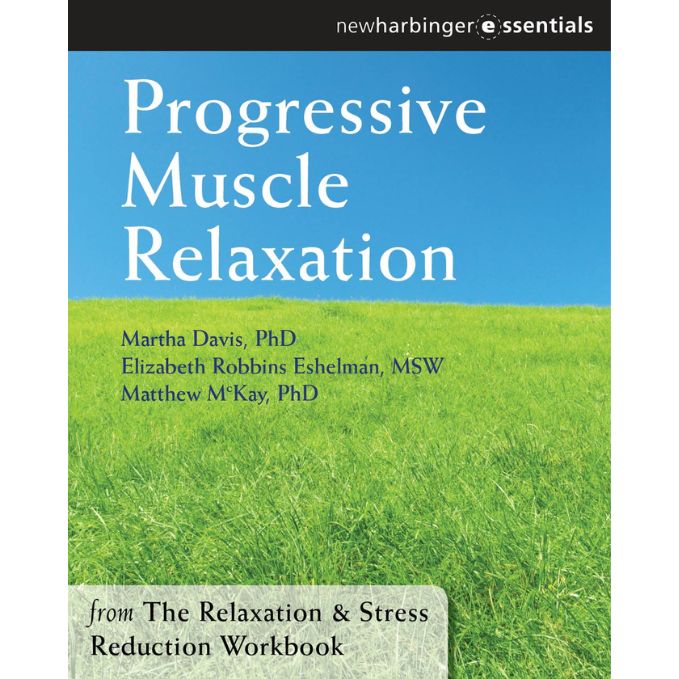Feeling overwhelmed and stressed is a common experience in our fast-paced world, and it’s easy to feel like there’s no escape. You may find it challenging to manage your stress levels, despite trying various methods to find relief. The constant demands of daily life can make it difficult to find effective ways to reduce stress and achieve a sense of calm.
Navigating the Overwhelming Demands of Daily Life
Feeling overwhelmed by the constant demands of work, family, and social responsibilities has become a familiar struggle for many. Chronic stress, as reported by the American Psychological Association (2020), is increasingly common and can severely impact both physical and mental health. The challenge of reducing stress is substantial, as many find it difficult to break free from the constant state of anxiety and tension (Mayo Clinic, 2023). This persistent stress creates a cycle that is hard to escape, leaving many feeling trapped and exhausted.
Discover the Power of Progressive Muscle Relaxation
Reducing stress through progressive muscle relaxation (PMR) involves systematically tensing and then relaxing each muscle group in the body, helping to alleviate physical tension and promote a sense of calm. This technique is particularly beneficial because it helps individuals become more aware of the difference between muscle tension and relaxation, which can aid in stress management. PMR can effectively reduce stress, anxiety, and insomnia by fostering a state of relaxation (Mayo Clinic, 2023). By incorporating PMR into your daily routine, you can develop a powerful tool to combat stress and enhance overall well-being.

PMR Workbook: Eliminate Stress Now
Unlock effective stress reduction strategies today!
✓ practical methods
✓ proven results
Steps to Perform Progressive Muscle Relaxation
- Find a Quiet Environment: Choose a comfortable and quiet place where you won’t be disturbed.
- Get Comfortable: Sit or lie down in a comfortable position.
- Breathe Deeply: Take a few deep breaths, inhaling through your nose and exhaling through your mouth.
- Tense and Relax Muscle Groups:
- Feet: Tense the muscles in your feet by curling your toes. Hold for about 5-10 seconds, then slowly release the tension and feel the muscles relax for 20-30 seconds.
- Calves: Tense the muscles by pointing your toes upward. Hold, then relax.
- Thighs: Tense the muscles by squeezing your legs together. Hold, then relax.
- Abdomen: Tense your abdominal muscles. Hold, then relax.
- Arms: Tense your biceps by clenching your fists and bending your arms. Hold, then relax.
- Shoulders and Neck: Tense the muscles by raising your shoulders to your ears. Hold, then relax.
- Face: Tense the muscles by scrunching your face. Hold, then relax.
- Maintain Awareness: Throughout the exercise, focus on the difference between the feelings of tension and relaxation.
Benefits of Progressive Muscle Relaxation
- Reduces Stress and Anxiety: Helps to alleviate symptoms of stress and anxiety by promoting physical relaxation.
- Improves Sleep: Can enhance sleep quality by relaxing the body before bedtime.
- Enhances Physical Awareness: Increases awareness of muscle tension, allowing for better management of stress responses.
- Manages Chronic Pain: Can be an effective tool for managing chronic pain and conditions like tension headaches.
Tips for Effective Practice
- Consistency: Practice regularly, ideally once or twice a day.
- Mindfulness: Combine PMR with mindfulness techniques, focusing on your breathing and the sensations in your body.
- Guided Sessions: Use guided PMR recordings or apps to help you stay focused and ensure you’re following the technique correctly.
Progressive muscle relaxation is a simple yet powerful technique that can significantly enhance your overall well-being by reducing physical and mental tension.
Using Workbooks for Stress Management Success
Workbooks can be a valuable tool in guiding you through the process of progressive muscle relaxation, providing structured exercises and clear instructions. By using a workbook, you can track your progress and stay motivated, making it easier to integrate this practice into your daily routine. It helps you understand and manage your stress better, offering practical steps to achieve a calmer, more relaxed state.

Progressive Muscle Relaxation: The Relaxation and Stress Reduction Workbook
This workbook provides practical, step-by-step exercises for incorporating progressive muscle relaxation into your daily life. Learn to differentiate between muscle tension and relaxation, reduce anxiety, and quickly find calm in stressful situations using scientifically tested methods based on cognitive behavioral therapy principles.
Achieve Calm in Daily Life
Reducing stress and finding calm in the chaos of daily life is essential for maintaining both mental and physical health. By incorporating effective techniques like progressive muscle relaxation into your routine, you can break the cycle of chronic stress and improve your overall well-being. Remember, small, consistent efforts can lead to significant changes, helping you achieve a more balanced and peaceful life.
Transform Your Destiny
Are you ready to unlock your full potential and create a life you love? Embrace practical and proven techniques to help you master your mind, empower your body, and rule your life.
Disclosure: Start Now How is no longer an Amazon Associate. Links to Amazon products in this post are provided solely for informational purposes and do not result in any commission. For more details, please see our Privacy Policy.
Legal Disclaimer
The information provided on this website, including blog posts and downloadable materials, is for educational and informational purposes only and is not intended as medical advice. The content is not a substitute for professional medical advice, diagnosis, or treatment. Always seek the advice of your physician or another qualified health provider with any questions you may have regarding a medical or psychological condition. Do not disregard professional medical advice or delay in seeking it because of something you have read on this website. The use of any information provided on this website is solely at your own risk. Before beginning any new health regimen, including natural remedies, exercise routines, mindfulness practices, or life improvement strategies, consult with your general physician to ensure it is appropriate for your individual health needs and conditions.
References
American Psychological Association. (2020). Stress effects on the body. Retrieved from https://www.apa.org/topics/stress/body
Mayo Clinic. (2023). Stress management. Retrieved from https://www.mayoclinic.org/tests-procedures/stress-management/about/pac-20384898
Mayo Clinic. (2023). Relaxation techniques: Try these steps to lower stress. Retrieved from https://www.mayoclinic.org/healthy-lifestyle/stress-management/in-depth/relaxation-technique/art-20045368

